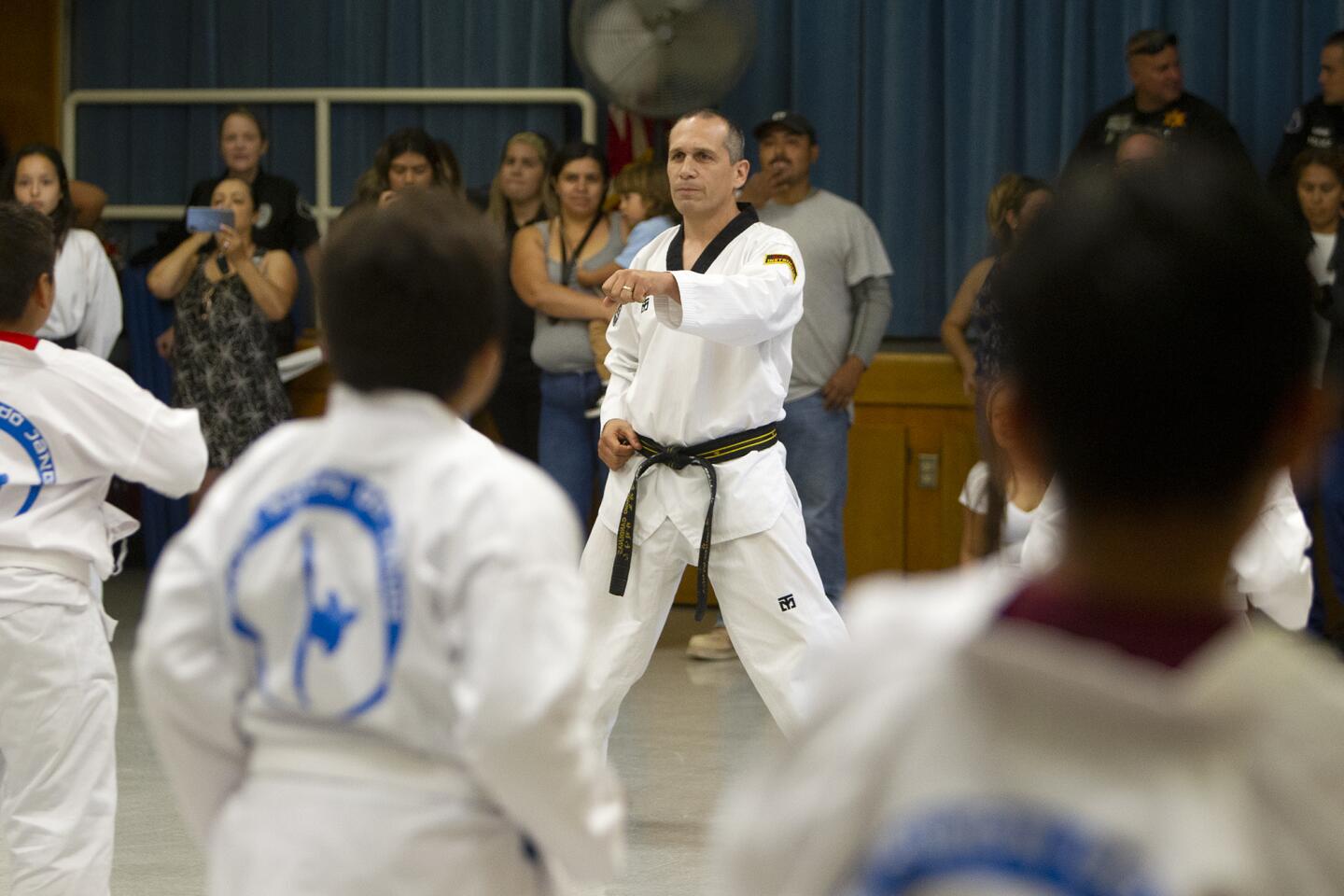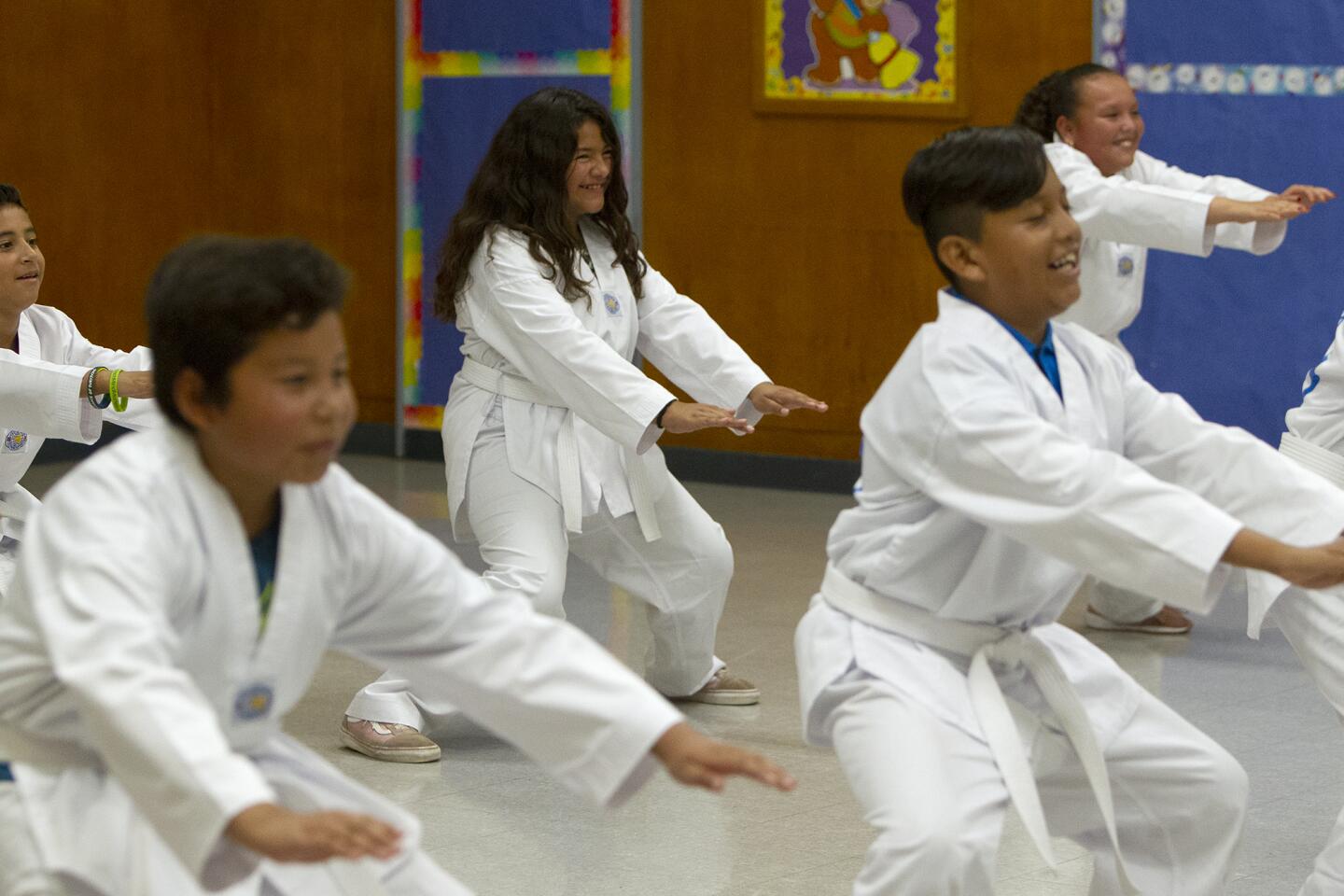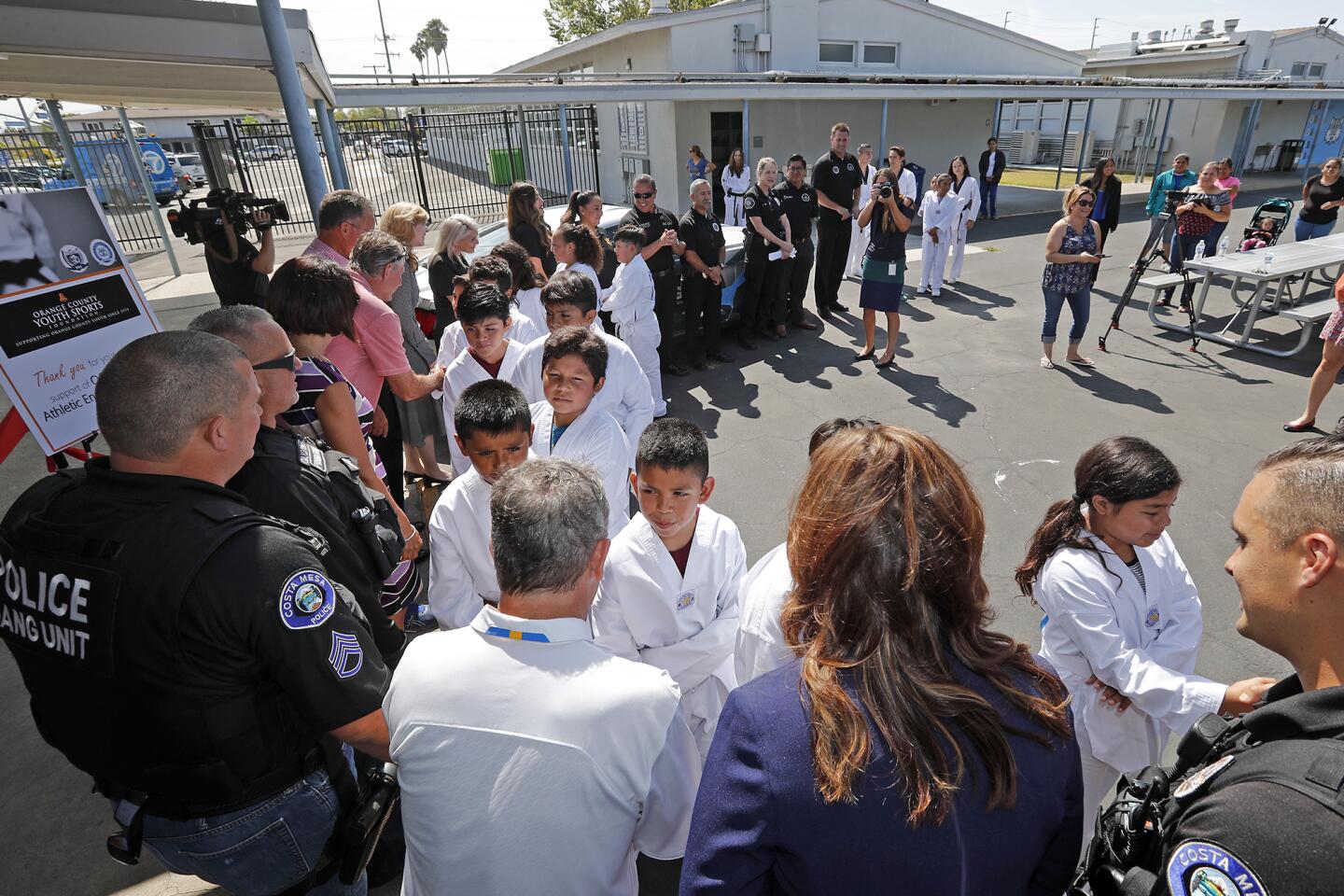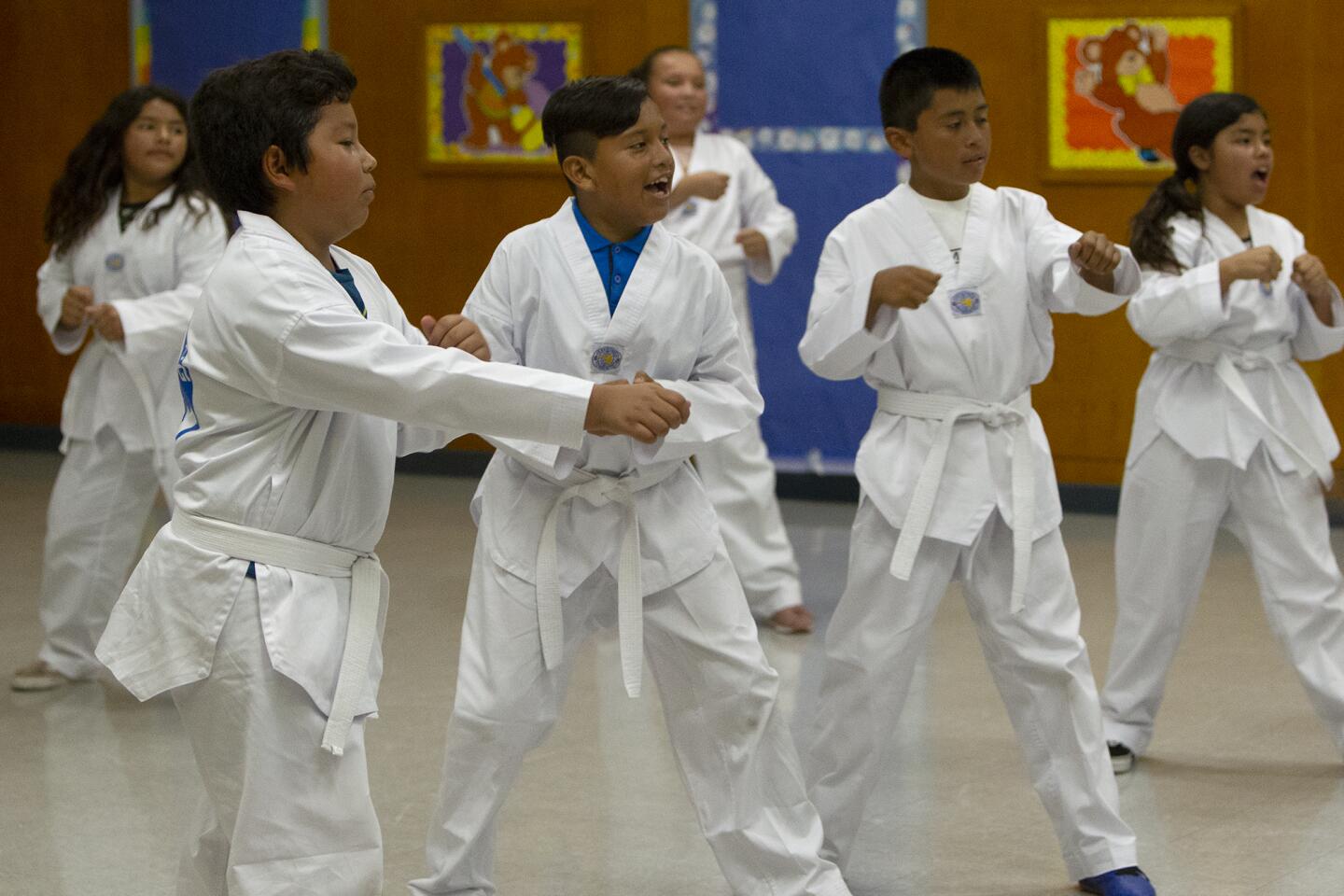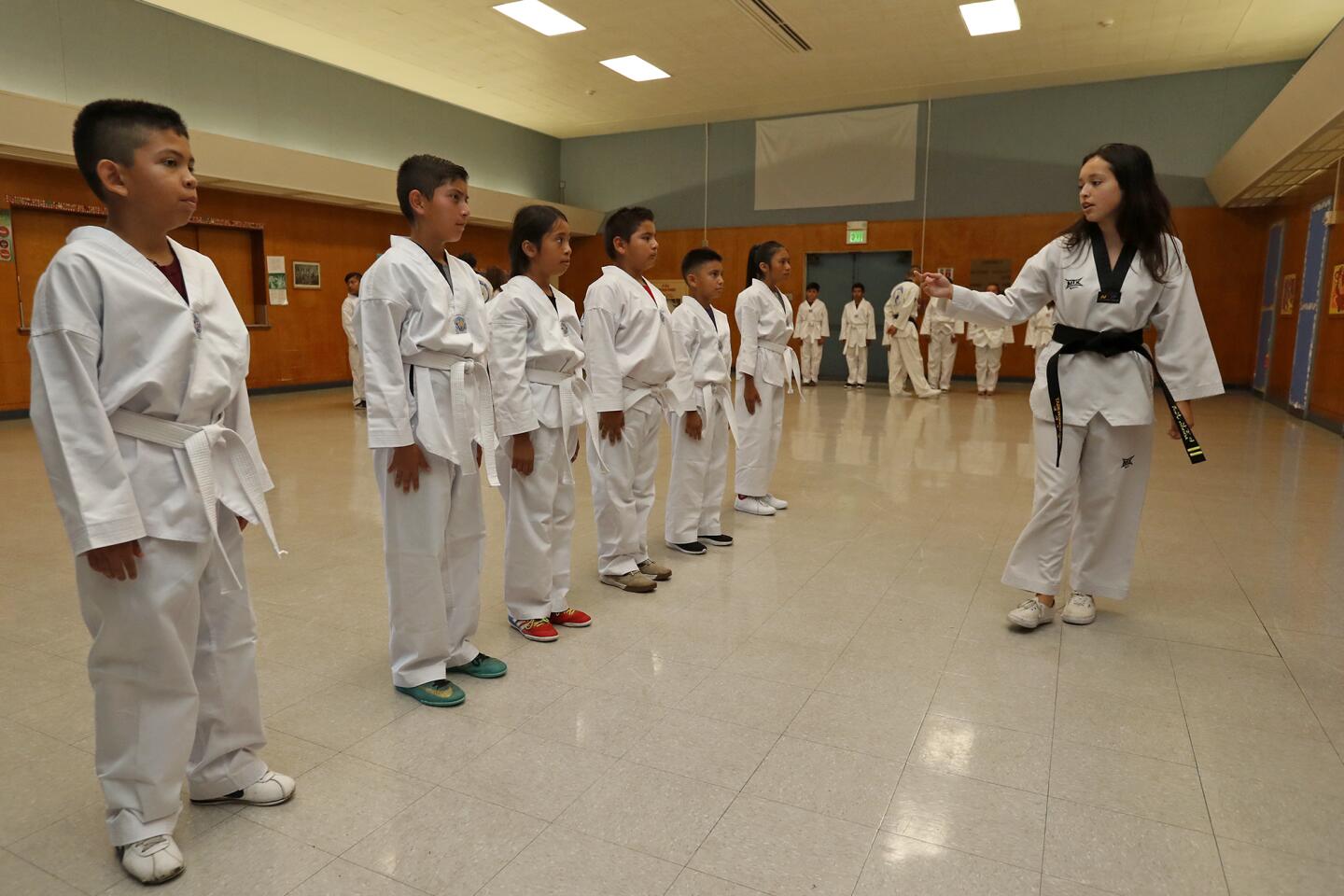Taekwondo summer camp kicks its way into Costa Mesa
Squeaking sneakers. Children counting off each punch, kick and jumping jack. Instructors giving direction.
Replies punctuated with “Sir” and “Ma’am.”
These are the sounds you hear as you approach Wilson Elementary School’s multipurpose room.
When the instructor says turn, the students turn. When the instructor says stay still, they stay still.
Not every order is followed to a T.
“No laughing,” Lola Godoy, a second-degree black belt, tells her students. “No moving.”
They do laugh. They do move.
After all, it’s only the second day of instruction at the Orange County Gang Reduction Partnership’s taekwondo summer camp at the Costa Mesa school, where the multipurpose room doubles as a dojang, a formal hall of instruction.
On Tuesday morning, the 18 students from Wilson and Rea elementary schools enrolled in the program performed a series of kicks and demonstrated horse stance — a low, wide squat — as part of the summer camp’s opening ceremony.
The students, who are in grades 4-6, had just learned the moves earlier that day, master instructor Sergio Cardenas said.
Cardenas, a sixth-degree black belt and owner of Taekwondojang in San Juan Capistrano, teaches the class with Godoy, Victor Chavez and Nico Garcia.
Cardenas, who has been involved as a volunteer with the “Strikes for Success Athletic Enrichment Program” since 2008, began staging the taekwondo summer camps in 2011 in San Clemente, Santa Ana and San Juan Capistrano. This is the first time that the camp, funded by a $20,000 donation from the Orange County Youth Sports Foundation, has taken place in Costa Mesa.
The children enrolled in the program, Cardenas said, are picked not necessarily because they are considered at-risk of joining a gang but because they may also just lack confidence or discipline that martial arts training could help with.
The foundation, the Costa Mesa Police Department and the Newport-Mesa Unified School District collaborated on the program.
Students learn the fundamentals of the Korean martial art, which features high, jumping and spinning kicks. They also practice taekwondo’s five tenets: courtesy, integrity, perseverance, self-control and indomitable spirit. At the end of the three-week course, students will earn the opportunity to test for their yellow belts.
The “Strikes for Success” program began in 2007 with the idea that businesses, schools and faith-based organizations could keep children out of criminal street gangs by partnering with local law enforcement, said Tracy Miller, a senior Orange County assistant district attorney.
Miller stressed the importance of keeping parents involved and accountable to make sure that their children had good school attendance records. By providing children access to resources as a form of intervention, the hope was that the children would make good choices and not join criminal gangs.
One student, Keven, 11, said he thought that taekwondo was going to be like karate. So far, Keven — organizers declined to release any of the students’ last names — said that he liked learning how to kick and how to be still.
Staying still is the hardest, he said, but mostly because he likes to move around.
“I was shy at first, but then I started knowing my teachers really well and they have been teaching me different kinds of moves like what I do right and wrong,” said another student, Sadie, 10. “I really like our master because he is a great trainer and the other teachers that are also helping us are also really good at demonstrating how our different moves should be.”
The point of the taekwondo summer camp, Cardenas said, is not to teach his students how to fight, but to empower and encourage them to make good choices — both inside of and outside the dojang.
The program generally provides a free outlet for at-risk children to do something enriching over the summer, Cardenas said, and works to instill in its students that though they may have difficulties in life that these difficulties shouldn’t be used as an excuse to make bad choices. And though the summer camp ends on Aug. 9, Cardenas plans to continue mentoring his students through monthly check-ins throughout the school year.
“With compassion, we look at the situation and we give them the guidance, but not guidance in pity,” he said. “We make sure that they understand that that’s their life ... and they have the power to change it.”
All the latest on Orange County from Orange County.
Get our free TimesOC newsletter.
You may occasionally receive promotional content from the Daily Pilot.
